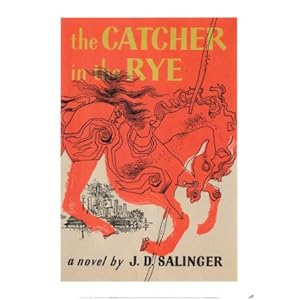
The reclusive creator of "The Catcher in the Rye," the literary hero of teenagers around the world, died a year ago (Jan. 27) at age 91.

In his sympathetic and insightful book, Kenneth Slawenski focuses on the forgotten fact that Salinger was a damaged war hero who struggled to make sense spiritually of the horrors he experienced in World War II.
Salinger never spoke of what he saw and did during the war, but Slawenski's use of military records is revelatory. Salinger landed on Utah Beach on D-Day.
Serving with the 12th Regiment, he fought at the freezing bloodbath of Hürtgen Forest in the winter of 1944. Of the regiment's 3,080 original soldiers, only 563 survived what Slawenski argues was "the most senseless carnage" on the Western Front.
Later, as an intelligence agent, Salinger interrogated captured enemy soldiers and French and German citizens. He spoke fluent German, a skill he picked up in 1937 while living for 10 months with a Jewish family in Austria. After the war, he searched for the family -- which included a daughter, thought to be his first love -- only to discover they had all died in concentration camps.
With the voice of Holden Caulfield, Salinger brilliantly captured the angst of adolescence. But Slawenski stresses that in "Catcher" (1951) and in his short stories, Salinger laments something far more adult: the loss of innocence and therefore faith in God.
A tormented man, Salinger was a writer of genius who became defined by the media because he shunned attention so fiercely.
This obsession with privacy started in Salinger's pampered Manhattan childhood, which was spent with parents who never discussed the past or their mixed marriage: Salinger's disapproving businessman father was Jewish; his adoring mother was Christian. A short-story class at Columbia in 1939 persuaded the ferociously ambitious and self-confident rich boy to become a writer before he entered the Army in 1942 at age 23.
Slawenski has written a terrific literary biography, one that jolts the reader into realizing why "Catcher" connects with readers 60 years after its publication. It is not about prep school misery. Rather, in its oblique way, "Catcher in the Rye" touches on the struggle to keep living even if one has lost faith that the world is a good place.
J.D. Salinger's life caught by author Slawenski



















